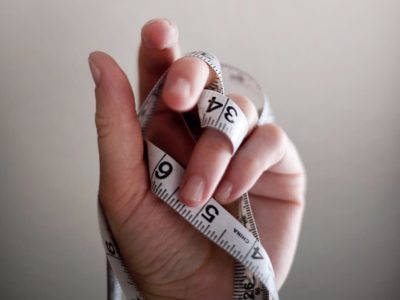The first time I had an eating binge I was 10. Everyone in my house was asleep for the night. I made my way to the kitchen, grabbing a can of soda, a pack of cookies and a box of cheese crackers. As soon as I got back to my room, I tore into the food and consumed it all within 30 minutes. I barely took the time to chew, breathe or swallow. Earlier that evening, my mother fed me apple slices, baby carrots and turkey slices for dinner. This was my first diet and certainly not the last.
It was this day that the idea of “good” and “bad” food came into my life. And it wasn’t until I went away for college that I began a journey of recovery with my eating disorder.
I’m recovering from binge eating disorder, where I would consume unusually large amounts of food and feel unable to stop eating.
Food episodes such as these continued for years. They didn’t just happen because I didn’t feel completely full after dinner. Instead, they often coincided with my emotions. Elementary and middle school felt exhausting. Other kids at that age were not the nicest, and often the words they said took a toll on me.
When you celebrate, you eat. When you feel sad, you eat. And when you lie on the couch watching Netflix, you eat. Eating is an everyday function, but for me it consumed my entire being. Often my actions seemed involuntary, as if my mind couldn’t communicate to my stomach that it had truly had enough. Night after night, I found myself cocooned in bed in the shape of a question mark asking myself: Why did I do this again? I’d feel guilty and ashamed afterward, but then remind myself it was only food and technically I needed it to survive. I tried to console myself that everything was fine.
To get my disorder under control in the past, I’d crash diet and count calories. But each time I felt restricted by what I could eat on these programs. I’d end up falling into the same cycle. Society programmed me to think that there are things I should eat, and things I should completely stay away from. I’d begin my day eating “right,” counting every unit of energy, just to fall apart at the end of the day.
Believe it or not, college helped me recover. I went away to school and began the terrifying experience of living on my own for the first time. A new town, not knowing anyone and often the unknown of what was to come would typically mean an eating binge. But during my time away, I had complete control over what I brought into my apartment. For instance, I got to choose what foods I bought.
Beyond that, before I set off to college I had this idea of the life I wanted to live. I didn’t want food to continue to be something I struggled with, so I sought professional assistance when I arrived. I’d done research online beforehand, and knew that taking a big step like that was within itself powerful. I learned the skills I needed to get better. I learned to take time to eat a nutritious breakfast, instead of skipping it altogether, to not feel guilty after every meal and to channel my emotions into things I love like activism, writing and spending time with friends.
I also started going out more, stepping outside my comfort zone and having fun. I’d never done these things before attending college. I made conscious decisions on what I was actually doing. Before social eating seemed like a death trap, something I avoided at all costs. My new friends also helped take me out of my comfort zone and experience things that I have never tried. Some of these included going to Friday night comedy shows and day trips to farm sanctuaries.
These small events that may not seem much to someone else meant the beginning stages of recovering from my disorder. Weekly ice-cream outings, Thursday spaghetti nights with roommates and grabbing sandwiches before an exam began to seem less daunting. I didn’t think about the numbers that lied within the food. Instead, I thought about how much fun I had with the company around me.
Many of my friends knew nothing about my eating disorder. Often having an eating disorder seems like a one-size-fits-all: Frail and with a lifeless body over a toilet bowl. I do not fit this mold. It’s one of those things where you’re often afraid to talk about it because you’re unsure on the reactions you’ll receive. So I don’t mention it often, but spending time with them has benefited me in the journey of recovery. Their company and constant support in everything I do continues to keep me going.
My internships, classes and social outings no longer make food an every hour thought. Now, I can go out and order what I want because food is not supposed to be “good” nor “bad.” I eat intuitively, which makes me more attuned to my body. College gave me the opportunity, by living on my own and meeting lifelong friends, to learn this. Without this experience, I most likely would not be recovering.



















